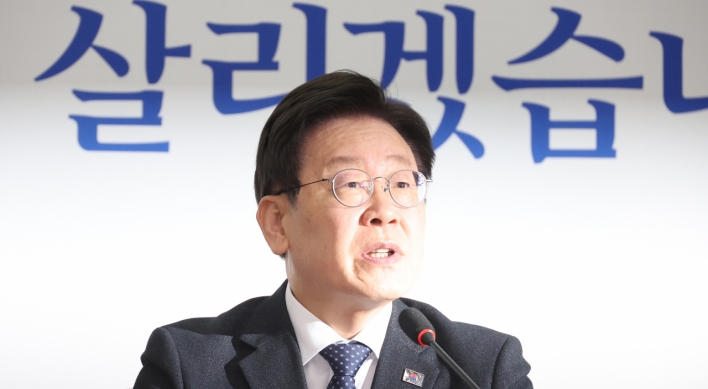S. Korea reports 202 more COVID-19 variant cases, total nearing 1,600
By YonhapPublished : June 1, 2021 - 15:08

South Korea has confirmed 202 more cases of COVID-19 variants, including 168 local infections, health authorities said Tuesday, amid concerns that the spread of more transmissible virus strains may further complicate the country's fight against the pandemic.
Of the newly confirmed variant cases, 170 were the Britain-originated strain, followed by 24 Indian variant cases and eight South African ones. There was no additional case of the virus strain from Brazil, according to the Korea Disease Control and Prevention Agency (KDCA).
The total number of COVID-19 variant cases reported here reached 1,592 as of Saturday since the country confirmed the first case in October last year.
Of the accumulated strain cases, variant cases from Britain topped the list with 1,317, followed by 133 from South Africa and 131 cases from India. Brazil-originated variant cases reached 11.
South Korea has stepped up efforts to curb the spread of more transmissible strains of the virus, including strengthening quarantine steps for arrivals from India, which has recently emerged as a hot spot for the virus.
All arrivals from India must stay in state-designated shelters for seven days out of a total 14 days even if they test negative for COVID-19. They must also be tested three times over the two-week isolation period, instead of the usual two.
South Korea has airlifted more than 2,000 nationals from India via special flights since May 4 after the South Asian country reported a surge in virus cases.
All foreign arrivals to South Korea must undergo a two-week isolation period, except for people who have been fully vaccinated here and test negative for the virus. (Yonhap)
Of the newly confirmed variant cases, 170 were the Britain-originated strain, followed by 24 Indian variant cases and eight South African ones. There was no additional case of the virus strain from Brazil, according to the Korea Disease Control and Prevention Agency (KDCA).
The total number of COVID-19 variant cases reported here reached 1,592 as of Saturday since the country confirmed the first case in October last year.
Of the accumulated strain cases, variant cases from Britain topped the list with 1,317, followed by 133 from South Africa and 131 cases from India. Brazil-originated variant cases reached 11.
South Korea has stepped up efforts to curb the spread of more transmissible strains of the virus, including strengthening quarantine steps for arrivals from India, which has recently emerged as a hot spot for the virus.
All arrivals from India must stay in state-designated shelters for seven days out of a total 14 days even if they test negative for COVID-19. They must also be tested three times over the two-week isolation period, instead of the usual two.
South Korea has airlifted more than 2,000 nationals from India via special flights since May 4 after the South Asian country reported a surge in virus cases.
All foreign arrivals to South Korea must undergo a two-week isolation period, except for people who have been fully vaccinated here and test negative for the virus. (Yonhap)







![[Hello India] Hyundai Motor vows to boost 'clean mobility' in India](http://res.heraldm.com/phpwas/restmb_idxmake.php?idx=644&simg=/content/image/2024/04/25/20240425050672_0.jpg&u=)










